Part of our Global Entrepreneurship Week celebration Nov 13-19, 2023. Guest post by Mike Humphrey, Japan Skiing has been part of my life for as long as I can remember. I don’t know why my parents decided skiing would be our family sport. They were not avid skiers, and we didn’t live in a ski […]
Part of our Global Entrepreneurship Week celebration Nov 13-19, 2023.
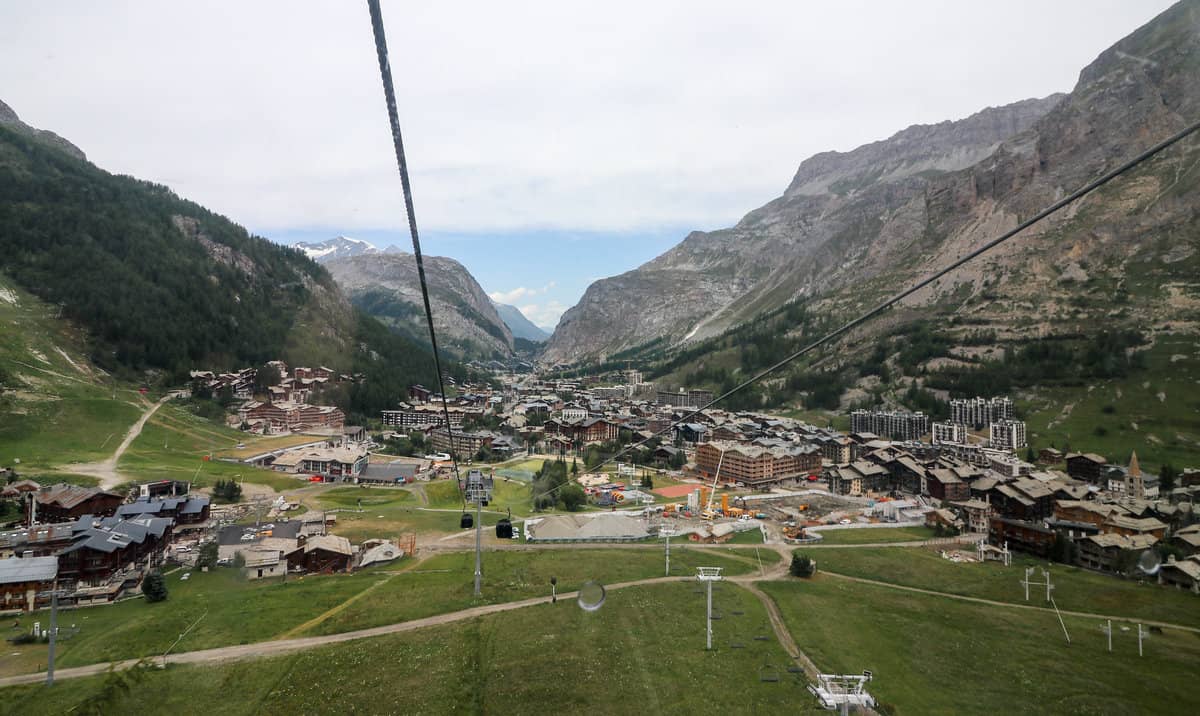
Photo CC by Joanbrebo
Guest post by Mike Humphrey, Japan
Skiing has been part of my life for as long as I can remember. I don’t know why my parents decided skiing would be our family sport. They were not avid skiers, and we didn’t live in a ski town. Whatever the reason, I was on skis at 3, and my love for the sport began. We would spend every weekend in the winter on the hill.
When I was 15, I became a ski instructor. Skiing is my passion. I love being out on the hill, and I love the mountains.
As I grew older, skiing was still part of my life, but it became a hobby. I went to university and got a job. I started a family, and things were going well. I would ski weekends at our small local hill, but it was slowly being relegated to an afterthought.
That all changed seven years ago when I left my corporate job. It was time for a life choice: continue with my career or make a change. With some savings in our account and dreams of powder turns, I leapt. I left my job and moved our family to a ski town in Japan.
It has been seven years since we moved to the mountains, and it has been filled with joys, challenges, and, of course, skiing. In that time, we have operated two hotels and a restaurant and weathered the storm of Covid. It has been a hell of a ride, and not without its difficulties. Despite the challenges, I would never return to working a corporate job.
Read on to discover the challenges we faced while building a business and our dream life in a small mountain town.
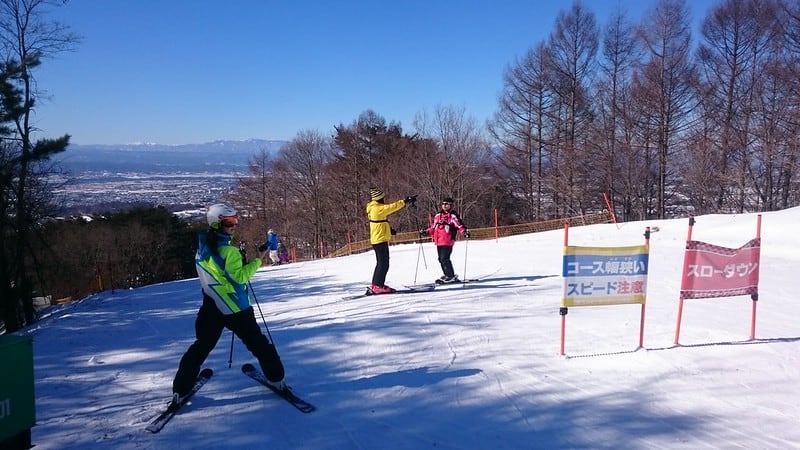
Photo CC by Cookie M
The Challenges of Running a Small Business in a Ski Town
1 – Seasonal Customers
The highs and lows of running a business in a seasonal destination, whether a ski town or a beach destination, are extreme. During the winter, the city’s population triples in size. In the span of 4 months, we get 400,000 tourists visiting our small village of 5,000 people.
The influx of customers is terrific for business but not always for sanity. Imagine the demand for your products skyrocketing for four months and then crashing back to almost zero as soon as the snow starts to melt.
As a business, you need to develop systems and processes to adapt to the extreme shifts in market demand.
Choosing a Business Model
There are generally two models to choose from when you decide what business to run. You can cater to tourists, or you can cater to residents. The best businesses are the ones that can manage to do both.
Catering to Travelers
With this model, you fully embrace the higher-paying tourists. You charge higher prices and focus on optimizing your returns for tourists. During the low times, you minimize your expenses and either shut the business down or drop prices and try to scrape by attracting lower-paying guests.
This is how we operated when we ran our hotel. We were very strategic with our opening dates and only worked during the peak season. During the slow times, we shut down the hotel, went into maintenance mode, and did upgrades.
This worked well when there were lots of guests, but if you have a terrible snow season or a global pandemic, for that matter, you can run through your reserves quite quickly.
Catering to Local Customers
Your goal here is consistent revenue throughout the year. You have to choose your prices to match the local market. Your customer base is smaller during the low season, but during the high season, your revenue jumps drastically.
This is the model we use to run our restaurant. We live and work in the community year-round and provide good food options at reasonable prices regardless of the season.
By establishing relationships with residents and business owners within the community, you can develop a strong clientele that will sustain you throughout the year. Those relationships help you to flourish during the high season when residents recommend your services to travelers in town.
Catering to Locals and Tourists
Matching both markets is a tricky needle to thread, and I haven’t seen many businesses do this successfully. Essentially, you must provide a service that can increase prices during peak times without alienating local customers. The closest we came to this was with the hotel, which had peak and low-time pricing. But this isn’t catering to local businesses; it’s just modifying your pricing to match traveler demand.
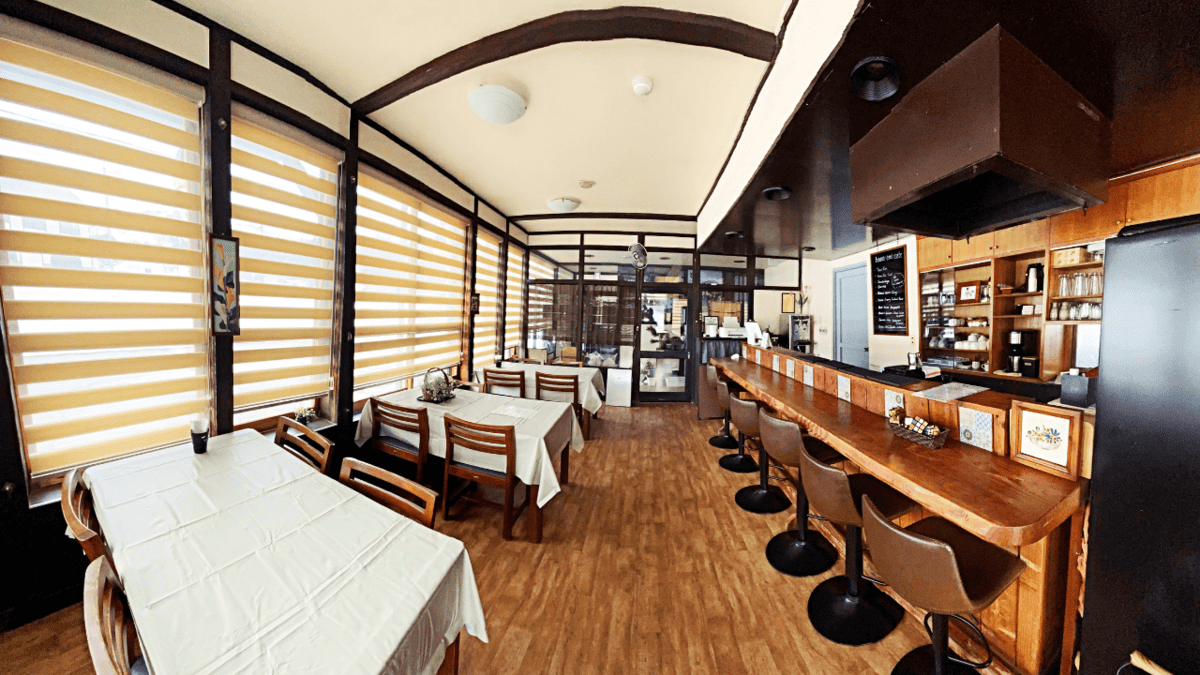
Photo provided by Mike Humphrey
2 – Staffing
Ski towns have some unique staffing issues that can be challenging for small businesses to overcome. The small local population combined with the boom and bust market makes staffing one of the most difficult things to deal with.
Staff Training
In a ski town, the money-making window is short, and staff is transitory. We hired 5 – 7 staff during peak season to help run the hotel. They would arrive early to mid-December, 1 – 2 weeks ahead of our first guests.
We rarely had repeat staff, and they had to be fully trained before the Christmas rush. It was trial by fire. You have to get them up to speed in 2 weeks so they can provide the best customer service possible. When the guests do start to arrive, it’s crunch time. You are running at full capacity almost immediately.
It’s the perfect storm. You need to hire the right people and have outstanding training programs and processes in place so they can hit the road running as quickly as possible.
Finding Good Staff is a Challenge
While this may be true for any industry, working in a ski town is appealing because you can ski. There is always a balance between finding a good employee and their desire to hit the hill.
As soon as the ski season starts, it’s too late to hire someone new. You better find the right people at the beginning and make sure they are doing a good job. Having to fire underperforming staff mid-season is a considerable risk.
You have to weigh the negative impact of keeping the employee on versus the risk of being short-staffed.
I have been through both experiences, and it was better to let the person go instead of hanging on.
Here are some tips for finding good staff.
Ask For Recommendations
Ask previous and current employees if they know anyone who would be a good fit. Check with friends and family or other business owners in the area.
Watch Out For Red Flags
Trust is critical; skills can be taught, but trust and work ethic can’t. During the interview process, look for signs that there may be issues. Identify them immediately and be upfront. Don’t move on until you feel entirely comfortable.
Check references. Call them and have an honest conversation. Ask what issues they had with the employee.
Use Contracts To Your Benefit
An employee contract goes a long way to establishing a good relationship with an employee. Reviewing and signing a contract makes your relationship official and keeps your employees committed.
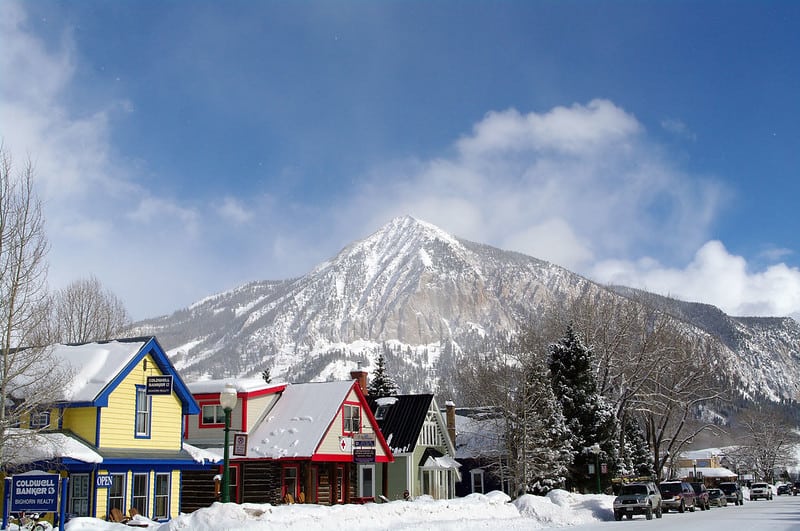
Photo CC by lamoix
Retaining Staff
The boom-bust nature of the ski industry means you can’t always keep staff all year long. The business can’t sustain employees during the low season. You always run a skeleton crew during the off-season and go into maintenance mode.
This means retaining good employees is hard. Expecting people to stick around and barely make enough money to live is unreasonable. Here are some ways to keep staff all year round.
Provide Extended Vacations
Give staff the chance to take time off during the shoulder seasons. They can take the opportunity to travel or go home to see family.
Reduce Staff Living Expenses
Consider alternative living arrangements or provide food through your business.
Collaborate with another business and offer a trade. Provide your services in exchange for cheaper accommodation for your staff.
It’s Hard Work
You have to make hay while the sun shines. For 4 – 5 months, you run flat out. Not only that, it’s playtime as well. You want to be out on the hill as much as you want to run your business. It’s easy to be understaffed and run your employees ragged. It’s a 4-month whirlwind of activity that can be hard to handle.
The critical takeaway is good hiring, training, and processes/systems. Watch for red flags when hiring staff; do not ignore your feelings about people. Don’t get me wrong, I have had some exceptional employees, but I’ve also had some horrible ones. Getting staffing right is crucial to making your small business work in a ski town.
One-on-one Training
When you’re in the thick of things, spending an hour or two with your employees teaching them may feel like a waste of time. But this is time well spent. An hour now could save you 10 – 20 times that time later in the season.
Learn From Other Businesses
We have friends who manage a hostel. They offered to take us through the building to show us how they managed their property. Here are some of the changes we made:
- We added a self-check-in process for late arrivals
- Better Signage
- Better local information Kiosk
Hire an Expert
If you’re unsure how to get better, find someone who has done it before and offer to pay them for their time. Have them watch how you run your business. Then, get them to make recommendations on how to improve.
Lessons Learned
After the season, talk with your employees about how things went. What things did you do well, and what could be improved? What pain points did the employees experience? Your perspective and the perspective of your employees will be different, and it’s essential to record what you learned.
Document
Solid documentation can be a great way to leverage your knowledge and compound your efforts. Keep records of everything you do. I like to use a Google Folder to build up a library of procedures. Whenever I need to use it, I review it and try to improve it. Things to document:
- Role Descriptions
- Job Postings
- Marketing Materials
- Standard Operating Procedures
- Annual Schedules
- Maintenance requirements
- Licensing renewals
This list will depend heavily on the type of business you run.
Implement
Last but not least, implement. If there is no action or change, then nothing will improve. I like to use project management software like Asana or Wrike to break everything down into manageable tasks. It will eventually get done as long as it’s written down and recorded.
3 – Cashflow Management
Cashflow is king, and managing your finances through a ski town’s boom and bust cycles is tough. Your business depends on tourists arriving at the start of the season to keep it running.
Building a reserve that sustains your business throughout the year is essential. But you also need to balance this against re-investing in your business. Cash sitting on the books doesn’t help your business grow and expand.
4 – Work-Life Balance
Running a business in a ski town is not all fun and games. You must be organized, stay on your toes, and manage your time well. It can be easy to get overwhelmed by the pace.
You can use the winter playground if you manage your business well and have the right staff. However, if you don’t, you will run yourself ragged, trying to keep everything afloat.
Final thoughts from a seasonal business
So, if you’re considering launching a business in a ski town, remember these points.
First, be prepared to put in a lot of hard work. It may not seem glamorous, but running a ski town business takes dedication and determination.
Second, be mindful of costs and stay on top of your finances. Knowing what you’re spending and where it’s going can help ensure you stay profitable.
Third, hire and train the right people to help you build a successful business. Finding and building a great team will make your life more enjoyable in the long run.
Finally, take advantage of where you live. Enjoy the mountains, the people, and all a ski town offers. It’s an incredible experience and one you won’t want to miss out on. I have seen too many business owners forget why they started their business and don’t get out and enjoy the lifestyle.
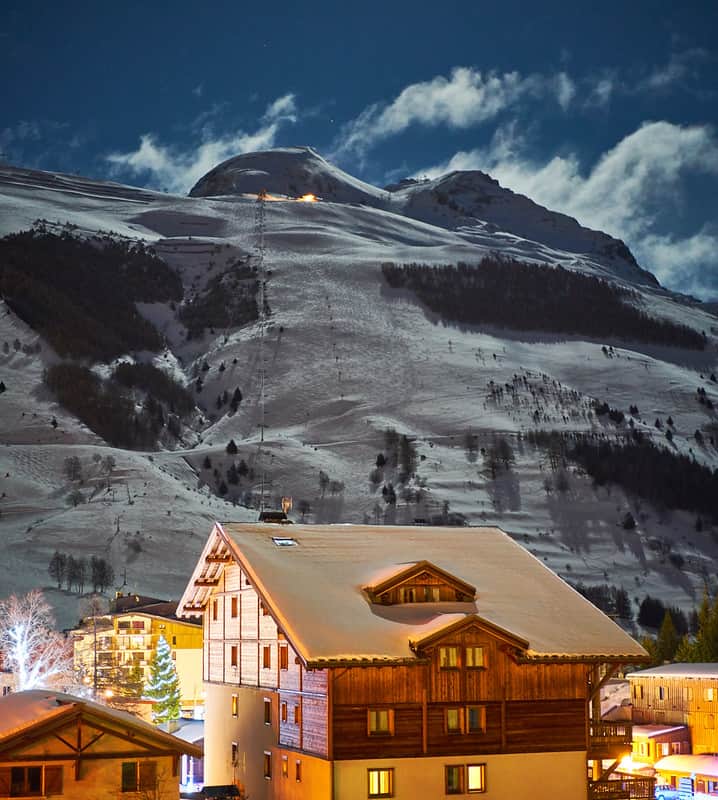
Photo CC by Radek Kucharski
Frequently asked questions: seasonal business
What are the peak seasons for running a business in a ski town?
The peak seasons are typically winter and summer when people come for skiing and summer outdoor activities.
Is it possible to maintain a steady income all year round in a ski town?
This largely depends on your business model. Some businesses are seasonal, while others offer services that are in demand year-round.
How do I attract local customers in addition to tourists?
Offering locals-specific discounts, involving your business in community events, and building a solid local reputation can all help attract local customers.
What challenges should I expect when running a business in a ski town?
Challenges may include:
- Dealing with the seasonal nature of business.
- Maintaining a steady workforce.
- Managing cash flow
How important is fostering relationships with other local businesses in a ski town?
Very important. Strong relationships with other businesses can help you stay informed about local trends, collaborate on joint initiatives, and create a support network.
Any advice on maintaining work-life balance while running a ski town business?
Schedule regular breaks, get involved in local activities, and ensure you take time for yourself and your family. Remember, enjoying your surroundings is part of the ski town experience!
About the author Mike Humphrey
Mike Humphrey is a writer and entrepreneur. He has operated several hotels and restaurants and founded mykhumphrey.com, where he writes articles about business, freelancing, remote work, and living abroad.
